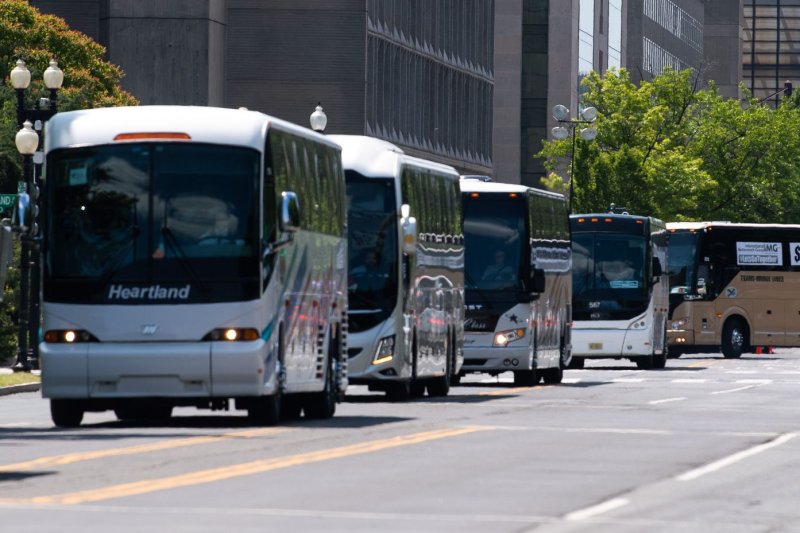Bus travel may be risky during the COVID-19 pandemic, a new study has found. Photo by Kevin Dietsch/UPI |
License Photo
Sept. 1 (UPI) -- Passengers on buses are at significant risk for catching COVID-19 if a fellow traveler is infected and face coverings and social distancing measures aren't being used, according to an analysis published Tuesday by JAMA Internal Medicine.
Among attendees at a religious event in eastern China on Jan. 19, those who traveled on a bus with one infected passenger were 11% more likely to be sickened with the virus than other attendees, the data showed.
Of the 68 passengers on the bus, 24 later were diagnosed with COVID-19, while just seven of 172 other attendees at the event, who traveled there separately, were infected, the researchers said.
However, none of the bus passengers wore masks, as face coverings were not yet the norm in response for the pandemic, even in China where it began, according to the researchers.
Being on the bus, in close proximity to other travelers, did not appear to pose significant risk, though -- none of the 60 passengers on a second bus that traveled to and from the same event were infected, the data showed.
"Really, the biggest risk would be from infected passengers coughing and sneezing, which could be mitigated somewhat if people wear masks, not necessarily from people sitting close to each other," Dr. David O. Freedman, an infectious disease specialist at the University of Alabama-Birmingham, told UPI.
"There's no such thing as zero risk, but if people wear masks and practice social distancing, the risk seems pretty low," said Freedman, who was not involved in the bus study.
The relatively long incubation period for the virus -- it can take several days to develop after infection -- also means that it's difficult, if not impossible, to know whether or not a person got sick during travel or before they left, Freedman said.















